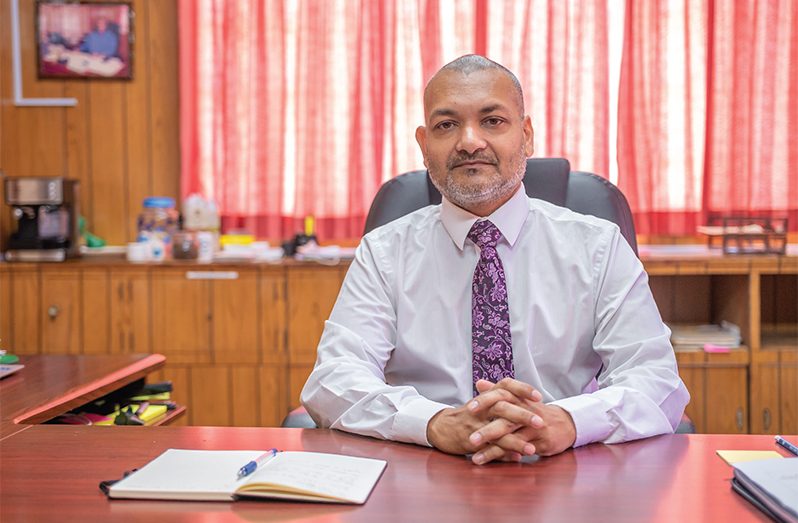One of Guyana’s most historic institutions
ANCHORED firmly in the village of Mon Repos on the East Coast of Demerara, along Agriculture Road lies one of Guyana’s most historic institutions: the Guyana School of Agriculture (GSA).
This institution was founded in 1963 and commenced its operations on September 9 of the same year, by the late President of Guyana, Dr Cheddi Bharrat Jagan. It was his vision to satisfy the need for national agricultural training in Guyana, which produced the opportunity for middle-level technicians and skilled practitioners in agriculture.
In 1964, GSA became a state corporation and had one of its proudest moments in history in 1966, when the first batch of 15 students graduated from the institution and were sent into the world of work.
As the years progressed, specialist training in forestry, animal health, veterinary public health, fisheries studies, and agro-processing have been added. This training was also offered in two main programmes: the diploma and certificate in agriculture.

In keeping with the school’s mission statement, “To promote and support agricultural development through education and training of young men and women interested in an agricultural career,” the institution extended a branch of its campus in 2008 in Region Two (Pomeroon-Supenaam), on the Essequibo Coast, where they offered a Diploma in Agriculture and a Certificate in Forestry.
Speaking with the Pepperpot Magazine, CEO of the GSA, Mr Gavin Ramnarine, explained that Dr Jagan believed that Guyanese should be trained in the technical aspects of agriculture and be able to go out into the fields with the necessary skill sets and tools that were needed in order for them to become entrepreneurs and make a life for themselves and their families.
According to the CEO, “Agriculture is not just about farming, there is a tremendous amount of science behind it, and the only way to progress in agriculture production is to actually understand the basics.”
Ramnarine explained that any agricultural business in the country that is existing or anyone with the intention of setting up one will more than likely have a graduate from GSA as their “ground man.”
“What we found is that the University of Guyana graduates tend to gravitate towards administrative things, such as working at different offices or ministries. But the GSA graduate is actually the man who does all the work. They tend to go into the extension service as well as work for the Ministry of Agriculture, NAREI and other institutions, with some returning to the school as lecturers,” said Ramnarine.

According to him, GSA gives people a “very good grounding” and the difference between GSA and a lot of educational institutions is that they are residential. Accommodation, three main meals and snacks are provided to everyone who goes to the GSA. This is to assist a lot of young Guyanese, especially those who are from the interior regions, as well as those who cannot afford accommodation and other basic necessities. Ramnarine also noted that GSA is a safe place that is equipped with security, a matron, a warden, councillors and all the relevant personnel that are required to make the students’ lives comfortable.
The CEO mentioned that they are committed to having a commercial farm. The institution also has a livestock farm that produces its own eggs, cattle rearing that produces milk for the students of the institution and sells from it as well as a pig farm, which the CEO said brings in a “nice change” during the Christmas season. He also mentioned that there are three crop farms and farms for fruits and vegetables.
According to Ramnarine, the GSA has evolved, and working in the agricultural field is no longer tedious. He also took the opportunity to encourage all the young people of Guyana to get into agriculture, saying, “There are so many options and opportunities that are available for you, the young people. You just have to have the courage to seize the opportunity when it’s there. Regardless of your circumstance, take the first step and break the mental barrier that is there in front of you. Everyone has an opportunity, get your education and have patience.”
Through the agro-processing unit, the institution now produces a lot of plantain, cassava flour, and porridge, a major income-generating commodity for GSA.
Even though the government of Guyana gives the institution a subvention, the CEO explained that there is need for a pool and other recreational facilities to help ensure that the students are well rounded when they leave the institution. He also stated that, in comparison to previous years, more than 60% of the students are female.
He is asking persons from the private sector to contribute towards enhancing and modernising some of their buildings, erecting facilities, providing tools and donating sanitary pads for the females at the institution, which will help in the reduction of the cost for the students.
Ramnarine mentioned that Sterling Products Limited and the Beharry Group of Companies have been helping GSA for a long time, but he is also asking the other private companies to take one of their students and let them see how a proper business is run and operated, so that they can gain the experience and pool it back into their communities, which will, in turn, help the country’s economy to grow.
GSA has a total of 4138 students who have graduated from the institution since its establishment, including several prominent individuals in Guyana, some of whom are owners of large, successful businesses in the country.




.jpg)









